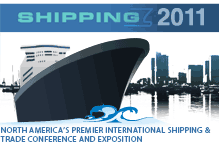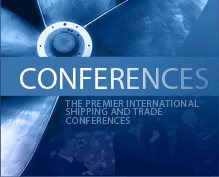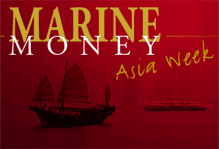
Big balls or just big bubbles? LNG Carrier Maintenance and Management
Even in a world of record low ship prices, LNG carriers remain good SLEP candidates. SLEP stands for Service Life Extension Program and is the term coined by the US Navy when Congress failed to give the Pentagon sufficient money to replace their oldest CVs on schedule. Missions being indifferent to budgets fathered some creative thinking and so at a fraction of the cost of new construction, four Essex class aircraft carriers were given fifteen years of additional service life after extensive refurbishment and upgrade. In addition to cost savings, SLEP was faster than new construction and the work was done at shipyards able to refit CVs but not equipped to build them.
Continue Reading
To Be, or Not to Be (Public)?
by Matt McCleery & Peder Bogen
Anangel American’s current $46 million rights offering is a reminder that the company is stuck in the twilight between being public and private, and perhaps for good reason. While all companies face challenging decisions with respect to growth, we think Anangel is a barometer of the prospects for capital markets driven consolidation in the dry bulk sector.
With a fleet of 22 modern vessels, a healthy balance sheet, strong management, and a ten-year old stock listing, Anangel, more than any other dry bulk company in the world, could position itself as a premier public consolidator of the fragmented sector. Now, with a window of opportunity open for the few dry bulk companies with strong balance sheets, the company must answer the question of whether bigger will ever be better for dry bulk. The implications for ship finance are enormous.
Continue Reading
The New Order
We take the words of comedian Will Rogers as our guide for this November issue of Marine Money: “Even if you’re on the right track, you’ll get run over if you don’t keep on moving.” We think the same is true of consolidation in the shipping industry and, in the following pages, we will show who why we think a two-tier market is forming for both shipowners and shipping lenders.
When we decided to take a look at Frontline Ltd., we were amazed at how little analysis was available on the company. As we began our research, we quickly discovered why: it is a very complicated company to capture. Not only is Frontline’s rapid growth and frequent financing a challenge to assemble, as the company continues to develop on a weekly basis, attempting to analyze it is a bit like hitting a moving target. But after several weeks, dozens of pages and charts, thousands of phone calls and hundreds of man-hours in the library and at the computer, we will argue that Frontline represents one of the shipowning paradigms that will prevail in the new millennium.
Continue Reading
An institutional perspective On shipping companies
by Andreas Vergottis, Warburg Dillon Read
Marine Money has asked me to discuss the “Institutional Investor Perspective” on shipping companies. I have consciously tailored my remarks to the composition of the audience, which in addition to financial investors includes hands-on shipowners. I have approached my subject from a Darwinian competitive business jungle perspective.
Let me start with the conclusion. The nature of the game has changed. Our industry is going through competitive upheavals which imply that the “traditional private family owned small shipping company” and the associated network of shipbrokers and agents will become totally extinct. In their place will emerge “direct e-commerce based large PLCs” with global scale of operations and clientele.
Continue Reading
Highlights of the Greek Ship Finance Forum
On October 21st Marine Money and MeesPierson arranged the First Annual Ship Finance Forum at the Intercontinental Hotel in Athens. A program dedicated to the Greek Shipowner was on the agenda and, as opposed to many other Ship Finance Conferences, the owners turned out in great numbers to listen to the speakers and, also, in a Greek fashion to linger in the lobby to catch the ear of a banker that just happened to be cornered with no room to run.
At the beginning of the conference there was standing room only and we even saw one or two sharing a seat. The conference started with Marsoft’s Dr. Anastasios Aslidis’ presentation on the current state of the different shipping sectors, which gave us the following prognostications:
Continue Reading
Anatomy of a Front Runner
by Matt McCleery and Nicolai Heidenreich
Armed with a limp share price and a lousy market and backed by a balance sheet and a battalion of devoted bankers, John Fredriksen and his three-man Frontline army continue to win strategic battles in their effort to build a pure play public tanker vehicle with enough liquidity and a large enough market capitalization to attract a broad range of institutional investor interest.
In the following analysis, we will use Frontline’s recent victory against ICB, won by attrition, as an opportunity to examine the multi-billion dollar experiment that Frontline is conducting before the eyes of the shipping world. By charting the waypoints on Mr. Fredriksen’s voyage, we will argue that his success comes down to four critical factors; (1) his belief in market consolidation and the benefits of scale; (2) his balance sheet engineering; (3) his willingness to use personal resources when necessary and; (4) his enthusiasm for heretofore unseemly transactions such as hostile takeovers.
Continue Reading
Reflections on the Ferry Finance Forum
A very moving experience succinctly sums up Marine Money’s 1st Annual Ferry Finance Forum, appropriately held at the New York Yacht Club on October 20th. Even before MM’s own evaluation, the sponsors’ closing assessment was that “1st” should be followed by “2nd”, so like the New York Mets, look for even better things next year.
The Forum led off with MM’s own analysis of growth and direction of the US ferry market, predicting that things will really get exciting as larger vehicle and freight capable vessels are deployed on coastal routes.
Continue Reading
When Should Shipowners seek assistance from their banks? What is the bank reaction likely to be?
by Kevin Oates
The dry bulk market seems now to be improving again, whether the improvement is sustainable is hard to say. The tanker market continues to be sluggish and many market commentators predict a difficult winter. The question which arises for many shipowners is when to approach their bank to request a restructure and what kind of reaction to expect from the bank. The article below gives some advice to shipowners about how to handle their banks in a tough market. It also warns shipowners about how their banks are likely to view such requests for restructure.
Freshly Minted – October 28, 1999
HIGH YIELD
GOLDEN OCEAN
A week of activity brings the company closer to reorganization. In Japan Kawasaki and Hitachi announce the “postponement” of eight vessels – including the seven notorious option vessels – with moneys to be applied against upcoming deliveries, which were ordered with money raised through the initial Bond offering. The savings on the next vessels could be as much as $16 to $20 million each, making the vessels competitively priced in today’s market. To put things in perspective, World Wide Shipping recently placed an order for 2 VLCCs at Daewoo at $70 million each. Just 16 months earlier the company placed an order for 2 similar ships at Daewoo for circa $80 million apiece. Patience pays. At the same time, Stena Bulk have come out with a ringing endorsement of the Golden Ocean World Trader class vessel, whose design flexibility permits it to trade equally effectively into Japan’s draught restricted ports as well as the rest of the world without any cargo carrying capacity loss. Finally in New York efforts are underway to finalize the financing on the next three deliveries – one to Shell and two to Stena Bulk. The process requires bondholder waiver in order to meet indenture covenants. We understand that the waiver solicitation deadline has been extended from today until Tuesday, November 2nd.
PEGASUS
No less busy a week, Pegasus saw its bonds downgraded by S&P to triple C minus, primarily basis the reported Blystad settlement terms and a technical loan to value covenant negotiation with Chase London. But management has overcome concerns about vetting clearance by oil majors and while the sector is brutally competitive vetting approval is vital. Continue Reading
Freshly Minted – October 21, 1999
STANDING ROOM ONLY IN HELLAS
Marine Money’s 1st Annual Ship Finance Forum Greece, sponsored together with MeesPierson, was an enormous success. Over 175 people turned up at the Athens Intercontinental Hotel today to learn about Capital Opportunities for Shipowners. A very strong, owner-oriented program brought 100 shipowners into the standing room only ballroom at the InterCon. “Get big, go public, or get out” warned Andreas Vergottis, shipping equity analyst at Warburg Dillon Read.
It was a busy week in Piraeus shipping circles generally with Nedship celebrating its 25 year anniversary today. The MeesPierson global shipping group also converged on Piraeus for an industry group meeting.
FERRY BUZZ IN NEW YORK
The austere model room of the venerable New York Yacht Club, usually crowded with hulls of early America’s Cup winners and cries of “Bring Back the Cup !”, was crowded yesterday with ferry owners wailing a different cry, “Bring Back the Ferry!.” Continue Reading







